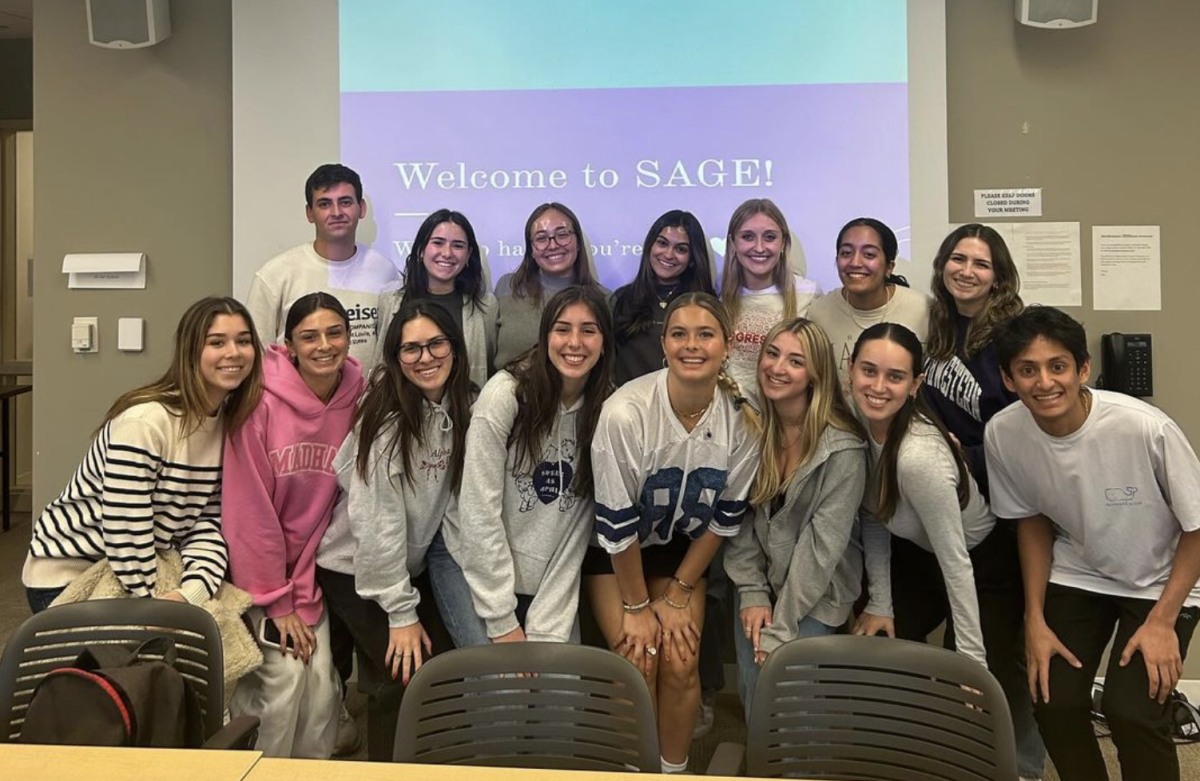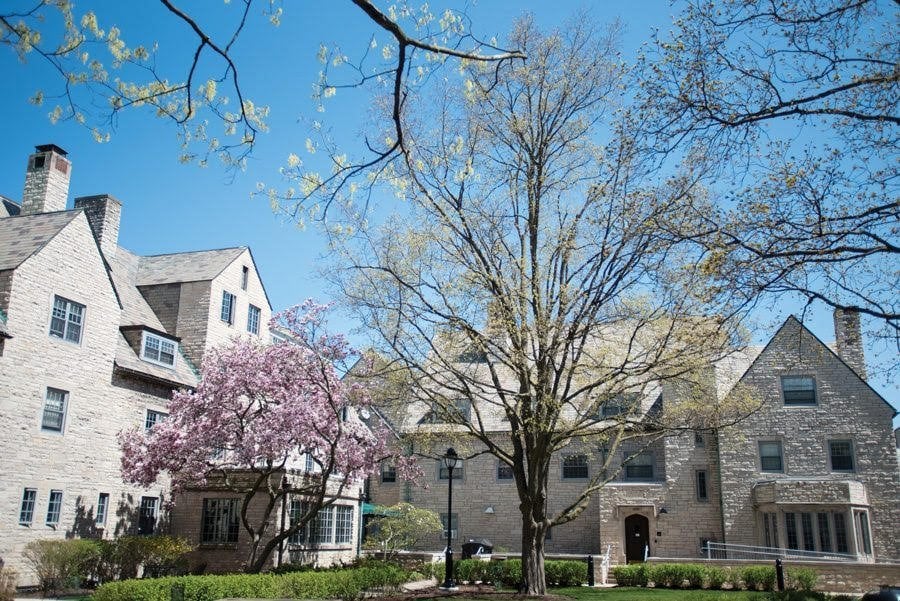Alternative Student Breaks and Students for a Sensible Drug Policy hosted a presentation on the imprisonment of undocumented immigrants Monday as part of Northwestern’s first Immigration Awareness Week.
The lecture was the inaugural event of this year’s planned programming, which will also feature a panel discussion by NU professors later this week. Matt Johnson, an organizer who works for No More Deaths, a nationwide advocacy group that works to decrease the number of immigrants killed in their attempt to cross into the United States, spoke about the history and failings of U.S. immigration policy.
In his speech, Johnson largely focused on the themes of border militarization and mass incarceration of arrested immigrants in for-profit prisons. He pointed to recent increases in border security by both the Obama and Bush administrations, such as the doubling of Border Patrol agents, from roughly 10,000 to 21,000, since 2004.
Johnson said such policies “astronomically increased the risk” of immigrants who attempted to cross the border illegally, and therefore posed a serious humanitarian problem.
However, Johnson spent a large part of his presentation discussing the prison-industrial complex. Government policies that increase incarcerations drive up profits in private prisons. Johnson said this holds true for the number of incarcerated immigrants as well.
“The effect of immigration enforcement is not to prevent migration, but rather to regulate it in a way that helps capitalism in the United States,” said Johnson, who compared the prison industry and the agricultural sector as two areas of the economy in which immigrants are exploited.
To support this point, Johnson pointed to legislation like S.B. 1070, a hotly-contested bill in Arizona that gave law enforcement officers the authority to ask about a person’s immigration status during a “lawful stop, detention or arrest” if they were suspected of being an undocumented immigrant.
“The prison industry is trying to refine and streamline the way in which undocumented immigrants are exploited,” Johnson said. “The prison industry just needs people to be here as an easily criminalized population.”
Weinberg senior Rebecca TeKolste, a former member of the ASB executive board, said the idea for an Immigration Awareness Week came on the heels of an ASB trip to Arizona, in which NU students volunteered with No More Deaths.
According to TeKolste, students returning from ASB trips are required to take part in an “active reflection,” which eventually led to the outline for a week focused on immigration.
“We came back and were just like, ‘We have to do this,'” TeKolste said.
One of the student leaders TeKolste contacted upon returning to campus was SESP freshman Frances Fu, the president and founder of Students for a Sensible Drug Policy. Fu, whose organization helped organize the panel discussion on immigration and drug policy that takes place on Wednesday, said she chose to join ASB in co-sponsoring the week because of the close relationship between immigration and drug policy.
Although SSDP advocates primarily for the legalization of marijuana, Fu said there were serious health and safety concerns about the illicit cross-border drug trade, especially with respect to those who carried the drugs inside their bodies.
“Because these drugs are illegal, the only way to traffic them is in an illegal way,” said Fu, who referenced the recurring danger of serious drug overdoses if improperly ingested drugs leak into a person’s body.
Although she noted that she did not want to speak for all of ASB, TeKolste said she hoped a similar week would take place next year. Fu did also, but said she was unsure if Wednesday’s event, which will be held in the final few days of classes, will draw a significant audience.






